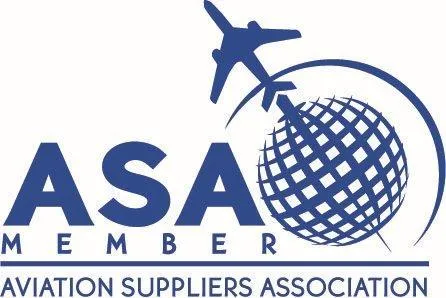
Can AI Eliminate the Risk of Unapproved Aircraft Parts?
Unapproved aircraft parts have long posed significant risks to aviation safety and operational integrity. The industry faces ongoing challenges in ensuring all components meet stringent quality and regulatory standards. Emerging technologies like artificial intelligence (AI) offer promising solutions to enhance parts traceability and verification. Improving the accuracy of records and physical identification processes reduces errors that often lead to the introduction of unapproved parts.
The aviation sector requires dependable systems that strengthen compliance and safeguard airworthiness. Automated approaches to parts management reduce human error and speed up inspections. These tools can analyze large volumes of historical data, spotting anomalies that might otherwise go unnoticed. Incorporating AI into aircraft parts management marks a transformative step toward safer, more transparent supply chains.
Understanding the Risks of Unapproved Aircraft Parts
Unapproved aircraft parts include components that lack proper certification or are counterfeit. These parts can cause mechanical failures and jeopardize passenger safety. The Federal Aviation Administration (FAA) estimates that over 500,000 counterfeit parts infiltrate the supply chain yearly. Detecting such parts traditionally relies on manual inspections, which leave room for mistakes and oversight.
Failures in quality assurance and record-keeping often allow unapproved parts to enter fleets unnoticed. Airlines and maintenance providers face costly delays when defective components require urgent replacement. Unapproved parts can also lead to regulatory penalties and reputational damage. Stronger data governance and verification protocols are essential to prevent these risks.

Improving traceability throughout the lifecycle of aircraft parts helps maintain compliance with safety standards. Maintaining accurate, verifiable documentation assists auditors and inspectors in confirming parts’ authenticity. Incomplete or inconsistent records increase the chance of approval errors. Aviation professionals must prioritize reliable systems that support data integrity.
Implementing AI tools enables faster, more precise identification of unapproved aircraft parts. Advanced algorithms can cross-reference manufacturing data, vendor histories, and serial numbers efficiently. These systems flag irregularities that may signal fraudulent or substandard components. Detecting risks early helps avoid costly operational disruptions.
How AI Enhances Parts Tracing Accuracy
AI technologies excel in processing complex datasets related to aircraft parts histories and conditions. Machine learning models improve over time by analyzing patterns in component data and maintenance records. This ongoing learning supports more accurate verification of parts’ authenticity and serviceability. AI helps reduce human error, which is often encountered in manual tracing methods.
Combining AI with digital traceability platforms allows real-time monitoring of parts across multiple stakeholders. Such systems integrate data from manufacturers, suppliers, and maintenance providers. Real-time visibility ensures any discrepancies in documentation or serial numbers are quickly identified. The speed and precision of AI-driven verification make it a powerful compliance tool.
Artificial intelligence can also automate the generation of back-to-birth (BtB) trace records for aircraft parts. BtB traceability requires detailed data spanning from the original manufacturer to the current installation. Manually compiling these records is time-consuming and error-prone. AI solutions accelerate this process, improving audit readiness and asset management.
Statistics reveal that AI implementation in parts tracing can reduce compliance errors by up to 40 percent. Improved data accuracy prevents unapproved parts from slipping through the cracks. Airlines and MROs benefit from streamlined operations and lower risks of regulatory breaches. Investing in AI strengthens supply chain transparency.
Challenges in Deploying AI for Aircraft Parts Management
Integrating AI solutions into existing aircraft parts management systems involves complex technical challenges. Legacy databases often contain unstructured or inconsistent data, which complicates AI training. Data cleansing and standardization become critical steps before AI can provide reliable insights. Ensuring interoperability between diverse software platforms is also necessary.
Cultural resistance within organizations may slow AI adoption in aircraft parts tracking. Personnel accustomed to manual or semi-automated processes may distrust new technologies. Providing adequate training and demonstrating clear benefits can ease this transition. Leadership commitment plays a vital role in fostering acceptance.
AI algorithms depend heavily on quality input data to deliver accurate results. Poor data governance compromises AI effectiveness and can generate false positives or negatives. Implementing robust data governance frameworks ensures consistency and reliability across datasets. These frameworks support AI’s ability to deliver trustworthy compliance assistance.
Security concerns also arise when AI systems handle sensitive parts data. Protecting intellectual property and confidential supplier information is essential. Employing encryption, access controls, and audit trails safeguards data integrity. Cybersecurity remains a top priority as digital tools become more integrated.
The Role of Digital Traceability in Supporting AI
Digital traceability platforms create a foundation for AI to function optimally in aircraft parts management. These platforms capture, validate, and store comprehensive lifecycle data for each component. Structured digital records enable AI algorithms to analyze trends and detect anomalies accurately. Without digital traceability, AI solutions cannot operate effectively.
Automating document validation reduces reliance on human interpretation and paperwork errors. Digitized MRO records provide immediate access to historical maintenance and compliance data. Aircraft parts with complete digital histories increase confidence in their authenticity. Digital traceability also facilitates faster lease transitions and inspections.

Transparency across the aviation supply chain improves as digital traceability becomes standard. Stakeholders, including lessors, airlines, and maintenance providers, can share verified data seamlessly. This collaboration decreases the likelihood of unapproved parts entering fleets. Improved trust among supply chain partners supports overall safety.
AI and digital traceability together provide a powerful compliance toolset. Combining machine learning with verified records creates continuous monitoring capabilities. Early warning signs of data inconsistencies allow proactive remediation. The aviation industry benefits from enhanced safety and operational efficiency.
Looking Ahead: AI’s Potential to Transform Aircraft Parts Management
Ongoing advancements in AI promise deeper integration with aviation supply chain management. Enhanced natural language processing enables AI to interpret unstructured data such as inspection reports and work orders. Future systems may predict component failures using AI-driven analytics, improving maintenance scheduling. These capabilities will further reduce risks associated with unapproved aircraft parts.
Wider adoption of AI depends on overcoming current data governance and integration challenges. Aviation companies must invest in scalable, interoperable technology platforms. Industry collaboration on data standards will accelerate AI implementation. Regulators may also adapt certification frameworks to recognize AI-assisted compliance tools.
AI holds potential to reduce operational costs by minimizing manual inspections and accelerating audits. Improved traceability shortens aircraft downtime and speeds up asset transitions. These efficiencies contribute to more sustainable aviation maintenance practices. Aircraft parts management will increasingly rely on data-driven automation.
The convergence of AI with digital traceability supports safer, more transparent aviation supply chains. Companies that embrace these technologies position themselves for competitive advantage. Reducing the risk of unapproved parts protects passengers and assets alike. Artificial intelligence is a critical tool in the evolution of aircraft parts management.
Enhancing Aircraft Parts Management with AI and ProvenAir
Implementing AI in aircraft parts management offers measurable improvements in accuracy, compliance, and operational efficiency. Enhanced data governance and digital traceability are essential for maximizing AI’s benefits. Companies equipped with AI-powered traceability platforms can better prevent the risks posed by unapproved aircraft parts. Ensuring trustworthy, verifiable records protects safety and supports regulatory readiness.
ProvenAir’s advanced digital traceability solutions enable automated back-to-birth trace generation and comprehensive data validation. Our technology integrates AI capabilities to accelerate maintenance workflows and promote supply chain transparency. ProvenAir has already detected over 10,000 human errors in the current supply chain. Partner with ProvenAir to strengthen your aircraft parts management and compliance efforts. Contact us today to learn how we can help you enhance safety and efficiency.


